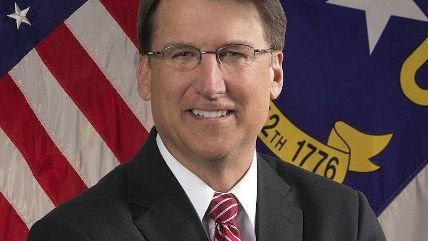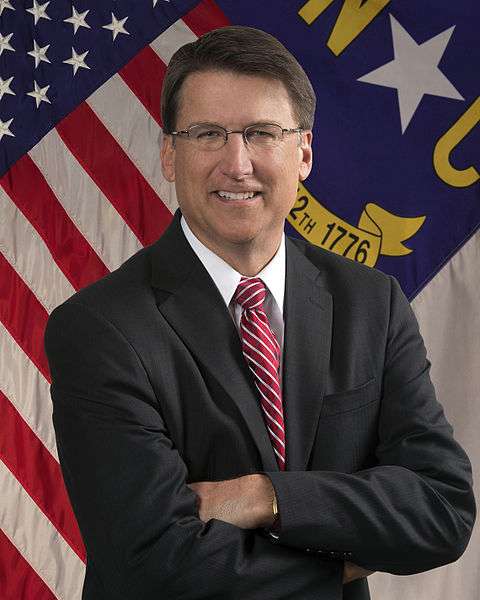Transgender Bathroom Panic May Help Decide Who Will Be North Carolina's Governor
Attorney general challenging for the job will not defend new law.


North Carolina Attorney General Roy Cooper is refusing to defend against a lawsuit challenging North Carolina's controversial new law that overrules Charlotte's LGBT anti-discrimination protections and requires transgender individuals to use the bathrooms of their birth sex in schools and government buildings.
This matters politically because Cooper, a Democrat, is running to unseat North Carolina's governor, Pat McCrory, who is vocally defending it and complaining that news coverage of the law's impact is inaccurate.
To be clear, it's absolutely wrong for McCrory to be claiming that it doesn't affect existing civil rights ordinances in cities within North Carolina. That's absolutely what it does by blocking the ability of cities or counties to expand antidiscrimination ordinances to categories not covered by state law. Whether or not those ordinances are appropriate or needed is another matter entirely, but the legislation literally says state discrimination laws (and the limits on them) preempt municipal laws. (I wrote more about the law here. Nick Gillespie provides some additional analysis here.)
As with Houston, the passage of the law was a backlash against Charlotte's attempt to require accommodation of transgender folks to choose their bathrooms. McCrory is correct when he complains that the state law has been represented as interfering in what choices private businesses make. It does not prohibit businesses from either having their own policies against LGBT discrimination or from private businesses accommodating transgender customers in whichever bathroom.
But it does require schools and government facilities to police their bathrooms and require transgender people to use the bathrooms and locker rooms of the sex listed on their birth certificate. So in that sense, the law standardizes a refusal by the government to respect the identity of the citizens that it is supposed to represent.
What Cooper's stand does is turn transgender bathroom panic into a fall election issue to a degree even higher than what we saw in Houston. People's opinions or fears about scheming men plotting to get free legal access to little girls without repercussion—regardless of how realistic such a fear is (it's completely unrealistic)—may help determine whether McCrory will keep control over the executive branch. McCrory is the first Republican governor of North Carolina in 20 years.
It's a flashback to the days when opposition to laws that favored gay and lesbian folks were used to rally conservatives, back when George W. Bush was president. But since then the dynamics have changed, and the Democratic Party has fully embraced every position pushed forward by the LGBT political activist establishment and is attempting to use these issues to get out the vote. While the Democratic Party has been "friendlier" on gay issues historically, it's only recently that they have started to use those issues as a wedge issue on their side rather than trying to find some sort of accommodation that staves off conflict. Both President Barack Obama and Hillary Clinton were famously opposed to same-sex marriage recognition less than a decade ago. But now it's full steam ahead, attempting to use federal law to codify protections against discrimination for gays, lesbians, and transgender people.
Given the extremely populist and unpredictable direction this election cycle has taken, it's difficult to say whether this transgender bathroom panic will help McCrory win a second term or actually hurt him in a Southern state that has a fairly Democratic background.


Show Comments (110)